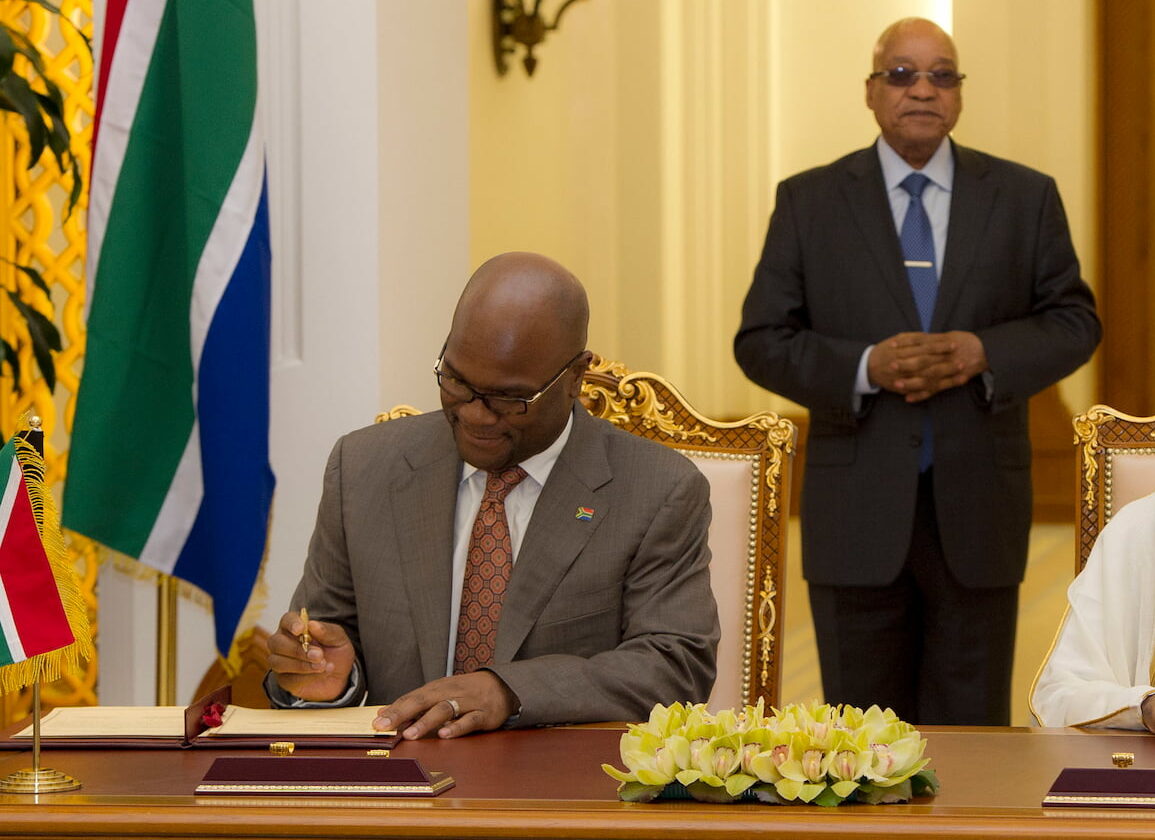
Mkhwanazi reveals how R200k secret wall was used to control Nathi Mthethwa
Nhlanhla Mkhwanazi has painted a disturbing picture of police officials manipulating ministers and oversight bodies.

KwaZulu-Natal Police Commissioner, Lieutenant-General Nhlanhla Mkhwanazi, has put explosive claims before Parliament’s Ad Hoc Committee, alleging that the late former police minister Nathi Mthethwa’s private home security wall in KwaZulu-Natal was illegally paid for using funds from the South African Police Service’s (SAPS’) Secret Service Account, potentially costing R200 000.
This shocking claim, reportedly dating back to 2011, highlights deep-rooted corruption within the Crime Intelligence division.
The initial controversy resurfaced following Mkhwanazi’s recent testimony at the Madlanga Commission just days before Mthethwa’s tragic death in Paris, and later before the parliamentary committee. Mkhwanazi detailed how rogue elements within Crime Intelligence allegedly used the slush fund to pay for the wall to compromise executive authority.
As reported by Mail & Guardian, an earlier 2012 probe by then-Auditor General Terence Nombembe confirmed R200 000 from the secret account was indeed used for the fence, yet Nombembe cleared Mthethwa of impropriety, finding no evidence he knew the funds’ source or instructed the work.
Why Crime Intelligence Built Mthethwa Wall
Mkhwanazi painted a disturbing picture of officials manipulating ministers and oversight bodies. He argued that Crime Intelligence members funded the wall specifically “so they could get control of the minister”. Once Mthethwa was compromised, these rogue agents could then “loot that money on their own, and the minister couldn’t say anything”, allowing the rot to continue unchecked.
Mkhwanazi emphasised the visibility of this alleged corruption, noting that although the “very big wall” is still visible at the former minister’s homestead today, no one has been held accountable for the misuse of funds.
Mthethwa, who was working as South Africa’s Ambassador to France when he died, had previously welcomed the 2012 findings that cleared him, stating he felt “vindicated” by Nombembe’s report. His spokesperson at the time, Zweli Mnisi, said Mthethwa acted on the understanding that the government generally paid for certain security measures and expected officials to follow proper procedures.
The ‘Worst’ Political Interference Alleged
Beyond the wall saga, Mkhwanazi detailed far worse interference by Mthethwa in 2012. Mkhwanazi explicitly told the Madlanga Commission that this period was the “worst” political interference he had ever encountered.
He claimed Mthethwa demanded that he stop the prosecution and disciplinary case against the suspended former national police crime intelligence head, Lieutenant-General Richard Mdluli.
Mkhwanazi, who was acting national police comissioner at the time, recalled Mthethwa summoning him to his Waterkloof home to apply pressure. Mkhwanazi accused the veteran minister of attempting to use him as a “pawn” because he was new to the role, having only come from specialised operations.
Mkhwanazi claims refused these instructions outright, telling Mthethwa: “You are wrong. I’m not going to do that.”
This entrenched dysfunction led Mkhwanazi to call for the closure of Crime Intelligence entirely, arguing that corrupt individuals from 2011 still hold key positions today.
